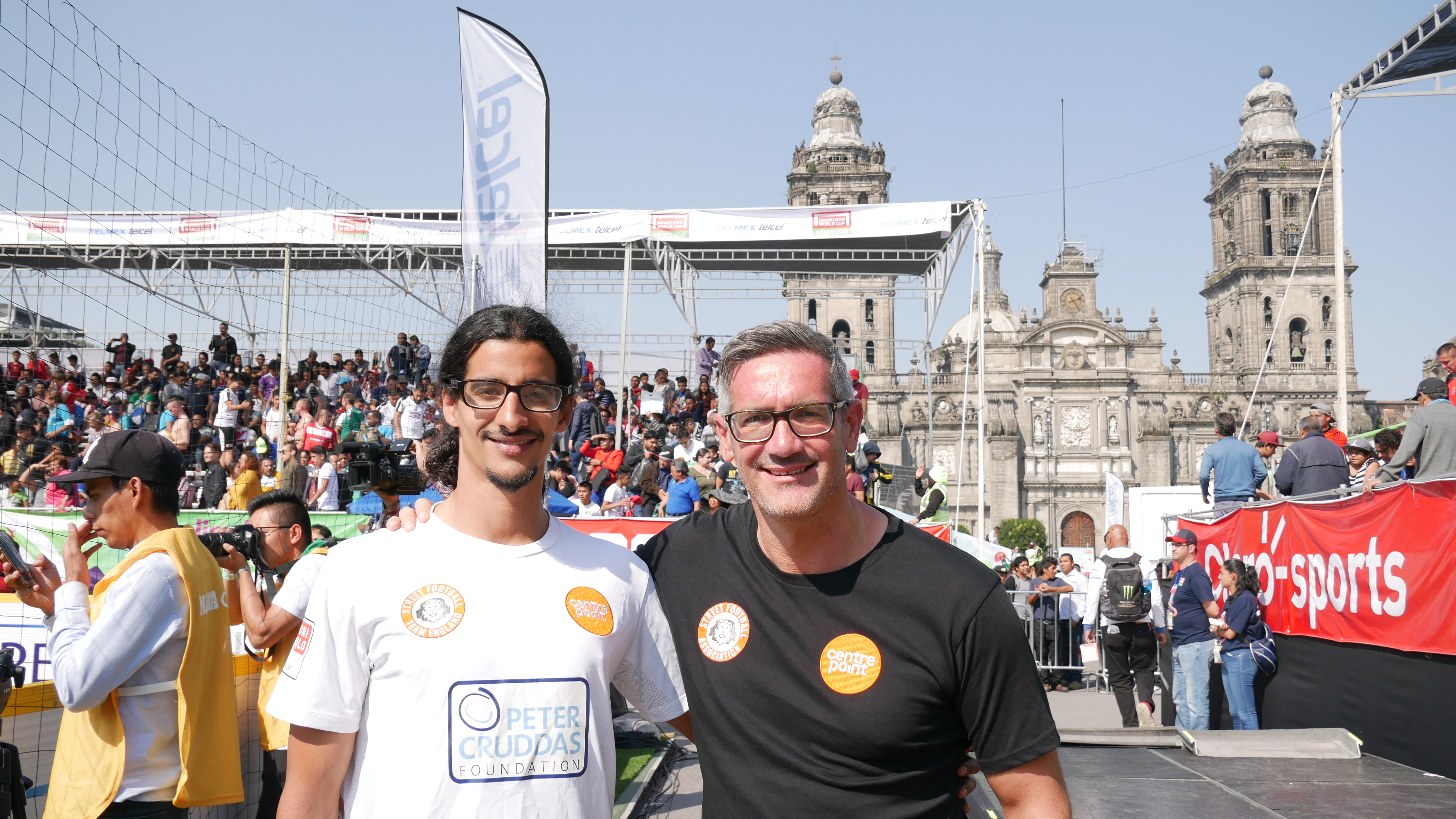It’s the World Cup. After a difficult start to the tournament, you find yourself four or five goals up against South Korea – so now’s the time to press home the advantage and pad that goal difference, right?
This is the position England found themselves in at the Homeless World Cup, this year played in Mexico City – but their instinct was not to go for more goals.
“We have to think about the other team,” team member Raph told the Press Association. “We got smashed by a team that are much better than us (earlier in the tournament). We don’t want them to feel the way we felt, because they’re such a different level.”
Team South Korea were presented with the third @FIFPro Award of the 2018 Homeless World Cup from former Mexican international Aarón Padilla.
Read the full story here: https://t.co/ROWvvOyKVt
📸 @DLProPhoto84 #mexico2018hwc#morethanagame#fairplay pic.twitter.com/xT8MvbxTrM
— Homeless World Cup (@homelesswrldcup) November 16, 2018
Instead of racking up the goals – which is not unusual in the four-on-four street football format – Raph and his team-mates eased off and allowed the South Korean side time and space to play.
“When we did they improved their football skills,” Raph said.
A match that could have ended in humiliation for a Korean side who had already lost 12-1 to Croatia instead ended with a 10-4 win for England and a bond formed between the two sides.
“When we stepped off the pitch, these people spoke no English at all, but they hugged us like we’d been friends for 10 years,” Raph said. “It’s priceless.”

Such a benevolent attitude to the opposition is unusual in football, and would earn some serious hairdryer treatment from most managers.
But England coach Craig McManus could not have been prouder of the way his team conducted themselves in the context of an unusual tournament where winning really isn’t everything.
“They understood, what did it feel like to be on the other side of a heavy defeat? So they worked with the players,” McManus said. “They celebrated the goals together when South Korea scored and it was great to watch.
“It’s the real spirit of this tournament where, regardless of what level of ability you are – because there are extreme levels of ability in this tournament – regardless of who you are it’s about treating people the right way and doing the right thing.”
The tournament brings together over 500 players from 47 different countries, all with experience of some form of social exclusion that may involve homelessness, drug dependency or mental health issues.
While every nation’s teams are different – some include players in their 50s – the 16-strong England squad are all between the ages of 16 and 25, eight male and eight female.
The team was brought together by the homeless charity Centrepoint – each nation’s team is run by a different homelessness organisation – referred by a range of programmes including sessions run by charity Crisis and community initiatives from Premier League clubs like Arsenal, Southampton and Newcastle.
Tonight Centrepoint's Team England are departing for Mexico City to compete in the @homelesswrldcup ⚽️
Join us in wishing them all good luck! 🍀
It's coming home. 💪#Mexico2018HWC pic.twitter.com/AV7gKOPq7S
— Centrepoint (@centrepointuk) November 11, 2018
The squad are aware of each other’s backgrounds and McManus and his staff encourage them to find common ground.
One player on the England women’s team, known as Natalia, found herself without anywhere to live as a teenager because her mum was using drugs and her dad had died from cancer.
Raph, meanwhile, became homeless when he dropped out of university in London and found himself alone in a strange city.
Both came to football through schemes set up to help disadvantaged people, and both found themselves representing England in Mexico under the management of McManus, a former professional footballer who himself experienced homelessness because of his struggles with addiction.
He played at the tournament in 2016, representing Scotland, and that led him to move from Glasgow to London to volunteer for Centrepoint before eventually becoming a full-time member of staff with the charity.
Wow, fantastic goal from England! 👏🏼#Mexico2018HWC #morethanagame pic.twitter.com/ysJRzDNJ7C
— Homeless World Cup (@homelesswrldcup) November 13, 2018
Now he hopes the young people in his squad in Mexico can benefit similarly by focusing on the lessons they can take from each game – for example, coming back from 3-0 down to beat Wales 4-3 in a match on Thursday.
“We reflected on how we achieved that, by being consistent, by sticking to our game plan,” McManus said. “Then we reflect that from a life experience – how does that reflect into day-to-day life?
“So the whole focus is personal development – football becomes secondary.
“We’re not here to win this tournament, we’re here to give the young people a positive experience and for them to see how great their lives can be.”
Little wonder, then, that making new friends from beaten opponents means more than a victory ever could.
/https%3A%2F%2Fsportsmole-media-prod.s3.gra.io.cloud.ovh.net%2Fuploads%2F2025%2F11%2Festevao-6926501e3975b566659219.jpg)
/https%3A%2F%2Fsportsmole-media-prod.s3.gra.io.cloud.ovh.net%2Fuploads%2F2025%2F11%2Foleksandr-romanchuk-69264839a6a12640016747.jpg)
/https%3A%2F%2Fsportsmole-media-prod.s3.gra.io.cloud.ovh.net%2Fuploads%2F2025%2F11%2Falonso-4-69264774b3d57305917036.jpg)
/https%3A%2F%2Fsportsmole-media-prod.s3.gra.io.cloud.ovh.net%2Fuploads%2F2025%2F11%2Fdelap-6-69263f59e370d977534812.jpg)